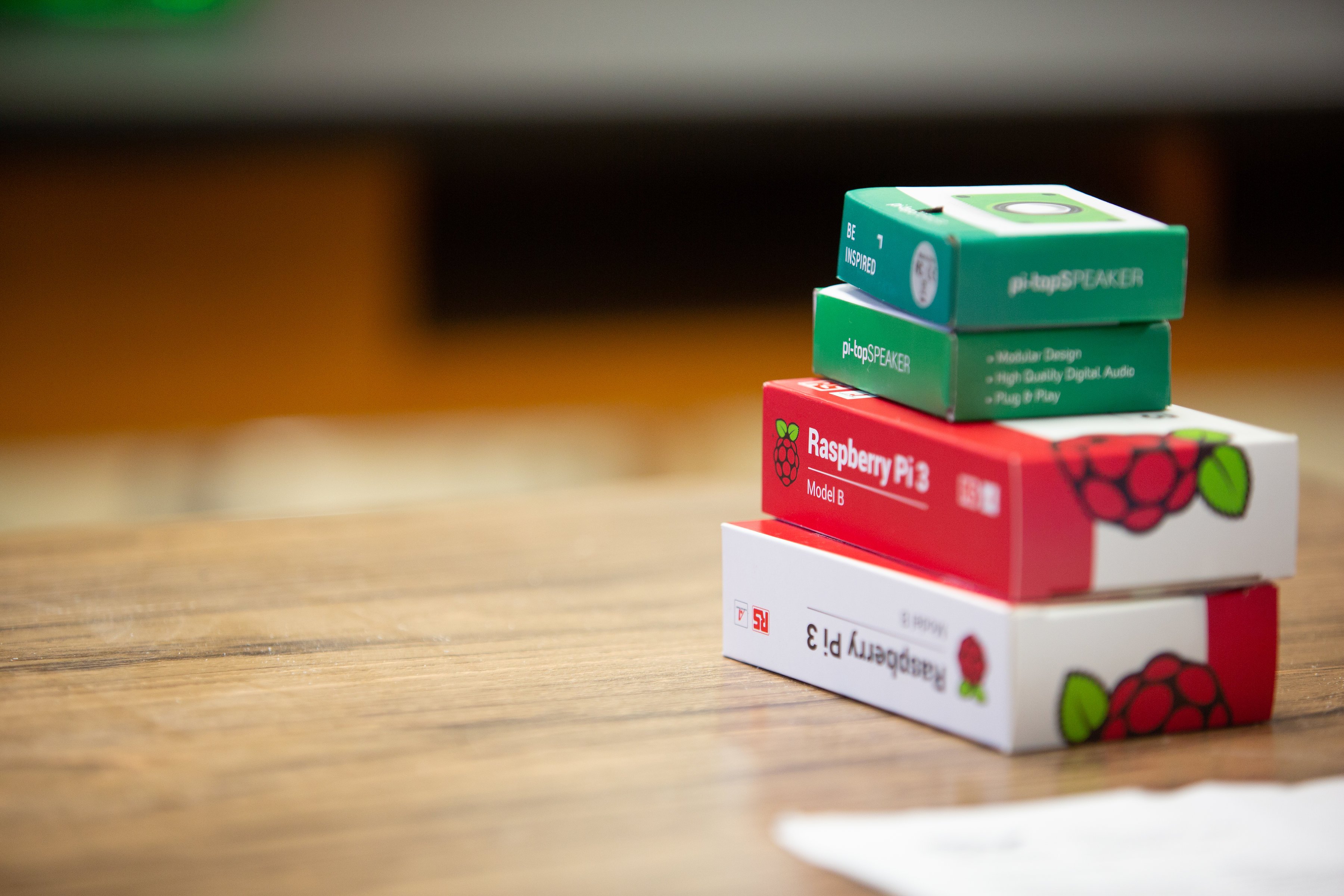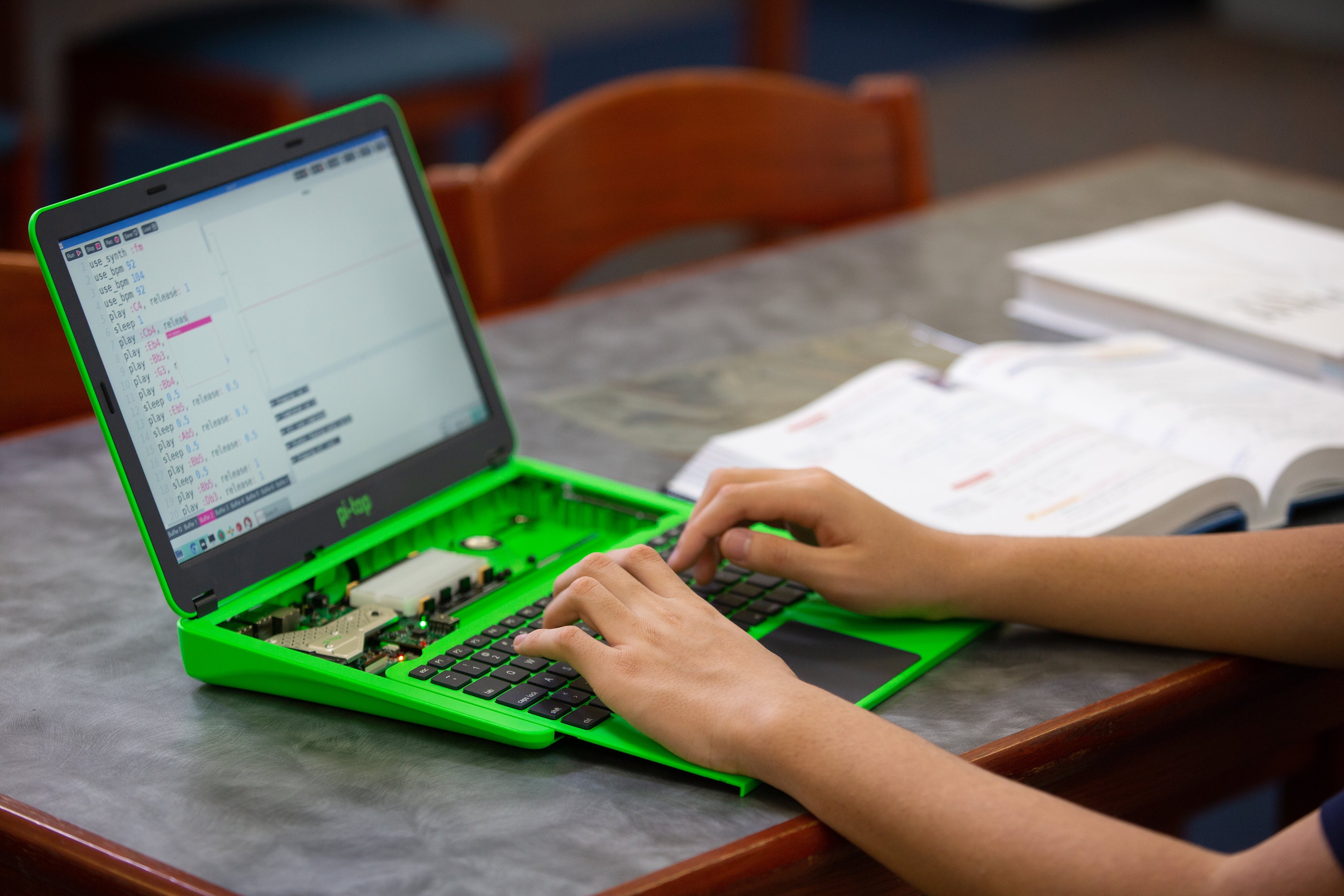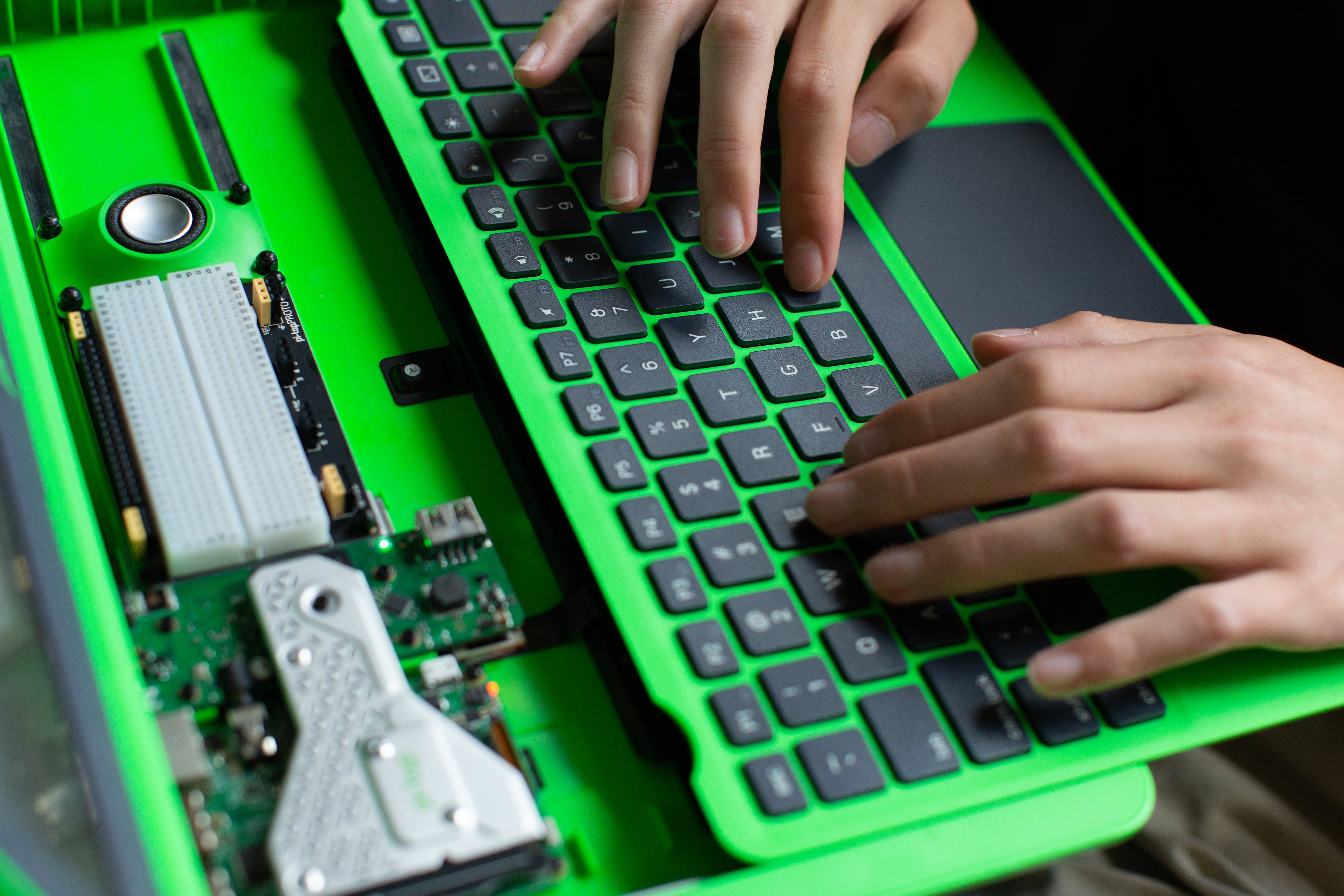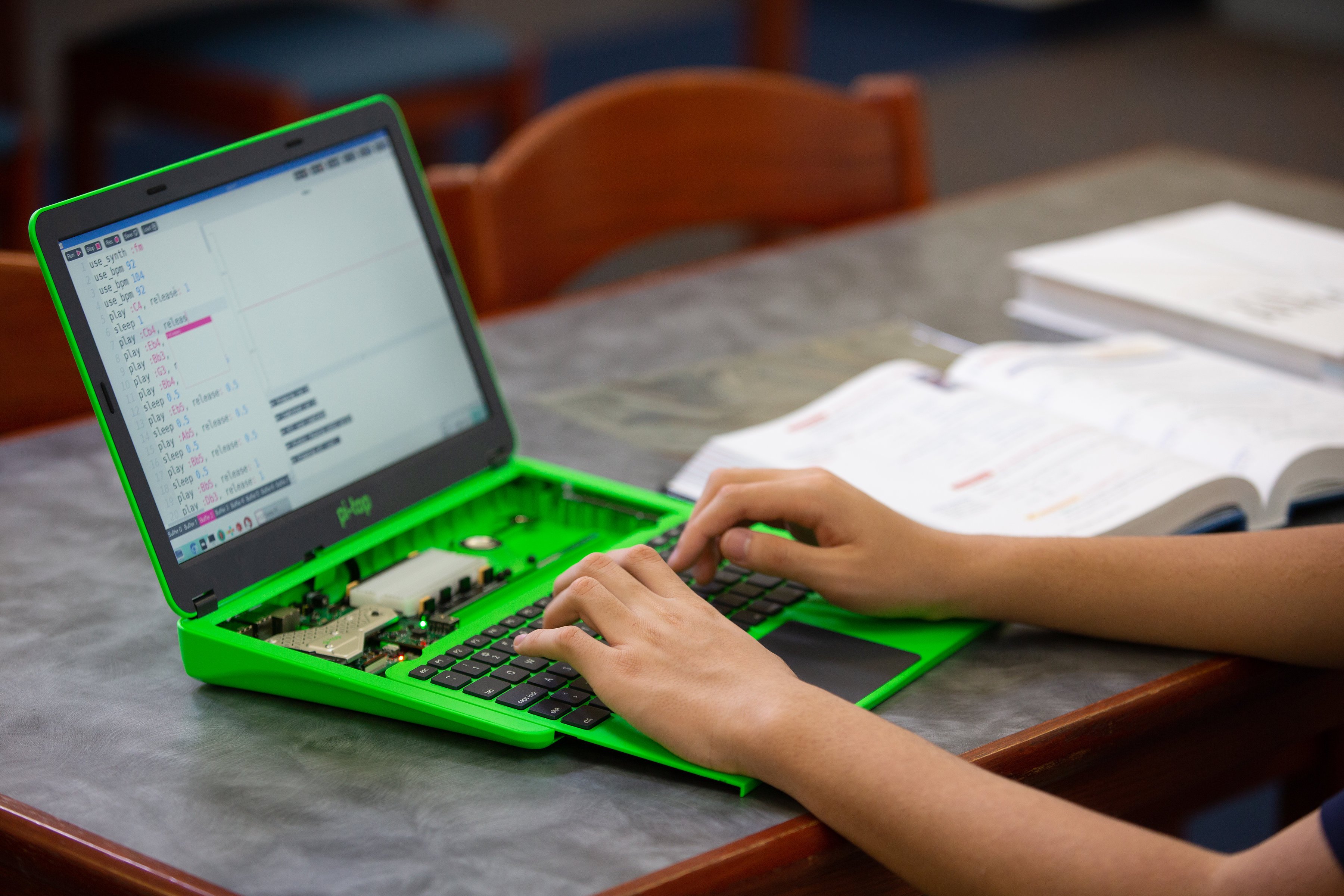All Saints’ Episcopal School is a leading college preparatory day school in Fort Worth, Texas. The school emphasizes leadership, academic rigour, and artistic exposure. Its aim is to provide an engaging and transformational educational experience with inspiring teachers, coaches, and mentors, in a challenging and nurturing learning environment. A group of educators from the school, comprising middle and upper school science and math teachers, have recently started using pi-tops in their lessons.
School size: 1,020 (PK, K-12)
Student teacher ratio: 8:1
All Saints’ does not currently offer computer science classes, but the school recognized the need to teach computer science as part of a rounded 21st-century education and therefore wanted a product which would allow them to test how this would work. Since using pi-tops in this pilot test, the school has decided to introduce two computer science courses in the next academic year; one to middle school students and one to upper school students, both using pi-tops. Great news!
What needs were there in the classroom for teaching computer science?

As All Saints’ does not currently offer computer science as part of the curriculum, students who are interested in classes in this area have to take online courses or find alternate solutions to taking classes on campus.
As computer science is so intrinsic in today’s world, and the need for people with knowledge and expertise in this area is growing, so it becomes increasingly important to provide students with a solid foundation not only in the principles of computer science but also with hands-on experience.
All Saints’ decided to run a pilot program with some of their middle and upper school students to gauge interest in the subject matter and better understand how to implement computer science classes into the school’s curriculum.
What is it about pi-top that meets the school’s needs?

The teachers involved in the pilot program told us that they were “most attracted to the comprehensive nature of the pi-top. We have the hardware, software, and a full curriculum. We are also drawn to how the activities are scaffolded to promote growth and accommodate learners at all levels. Students begin with a simple circuit and code and subsequent activities build on the basics. Best, students are encouraged to be creative and come up with other applications of the code or circuit.”
As beginners to this type of hands-on teaching in computer science, how did they find getting started in the classroom? Easy! “We found the overall user experience to be enjoyable, and the software was very easy to use. Once the hardware was set up, getting started and following the activities in the pi-top classroom was easy and enjoyable.”
The teachers were also very enthusiastic about the educational content that is part of the pi-top, which suited their beginner and more advanced students alike. They said that “for the novice student and faculty member, the lessons were great. They provided a great introduction to coding and simple circuits. For our more advanced students and faculty, the lessons were great refreshers and served as a springboard to create more challenging code and circuits.
“One of the captains on our Solar Car Team, along with his co-captain, has been working diligently to write code for data collection on battery performance for the race this summer. When he began, he had limited knowledge of coding but learned the basics by completing the pi-top activities, watching lots of videos, utilizing resources provided by the Solar Car Challenge and open source code. He has since written a simple program that monitors the status of the batteries. The students are now trying to use these resources to create a program that will monitor battery status when the pi-top is in the solar car and the batteries are being charged in a separate location!”
And everyone, students and staff alike, unanimously agreed that the integration with Sonic Pi to make music is their favorite feature of pi-tops!
Following the success of the pi-top pilot program, what happens next?

The pilot program at All Saints’ has allowed the school to gauge student interest in computer science. Now that they have more concrete numbers, the school has decided to offer formal courses using pi-tops from next year. Already, they have about 17% of the student body that is really interested in learning to code and taking a computer science course next year. All Saints’ will offer two computer science courses; one to middle school students and one to upper school students.
Additionally, feedback from parents to the pi-top pilot program has been positive – there is an appreciation of the school introducing their children to coding and providing opportunities and activities that foster their child’s love of coding.
The teachers said that overall, their experience has been “Fun, challenging, and rewarding.” Long may it continue!
If you’d like to find out more about how ‘learning by making’ with pi-top can help you, your students and your school, get in touch here.
The teachers featured in this case study are:
Joe Morris – Middle School Science Teacher, Science Department Chair, Solar Car Team Faculty Advisor
Lyle Crossley, PhD – Upper School Physics Teacher, Solar Car Team Faculty Advisor
Neil Mittal – Upper School Math Teacher
Kim Moore – Upper School Librarian /Web 2.0 Research and 3D Design Teacher
Janet Trammell – Upper School Physics Teacher, Solar Car Team Faculty Advisor
